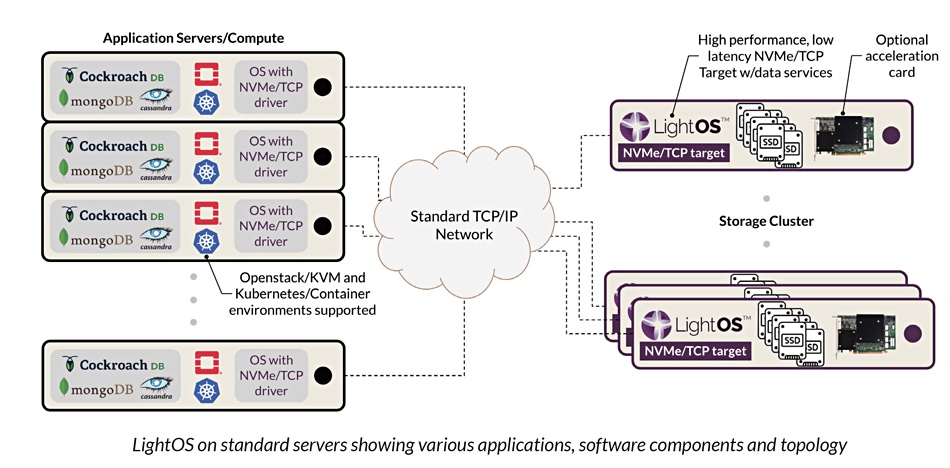All-flash array startup Lightbits Labs has launched a software update that provides NVMe-based persistent volume storage for Kubernetes.
It says LightOS v2.0 provides virtual NVMe volumes to Kubernetes, delivering low latency and high performance. It also provides clustering and high availability via target-side storage server failover. This is done via the standard Container Storage Interface (CSI) plug-in route.

Kam Eshghi, chief strategy officer at Lightbits Labs added: “At cloud scale, everything fails. LightOS 2.0 is the industry’s first NVMe/TCP scale-out clustered storage solution – protecting against data loss and avoiding service interruptions at scale in the presence of SSD, server, storage, or network failures.”
Lightbits distinguishes its array with NVMe/TCP support, providing NVMe-oF access across Ethernet TCP/IP network links.
Many, many suppliers provide persistent volume support for K8s – Portworx, StorageOS, Dell with PowerStore, NetApp, VAST Data and more –it is becoming standard table stakes in the containerisation storage game.

Lightbits claims to be different from the pack because it is clustered and supports rapid node migration, workload rebalancing, or recovery from failure without copying data over the network. If any computer node in the network fails, data is moved virtually by pointing it to another container.
LightOS 2.0 is automatically optimised for I/O intensive compute clusters, such as Kafka, Cassandra, MySQL, MongoDB, and time series databases. Each storage server in the cluster can support up to 64,000 namespaces and 16,000 connections.
V2.0 LightOS has support for Kubernetes v1.13 and v1.15 – v1.18 and later, for any volume size, number of volumes or Kubernetes size cluster. Aa well as the CSI interface it also allows stateful containers via a Cinder plugin. The v2.0 SW is now available.







